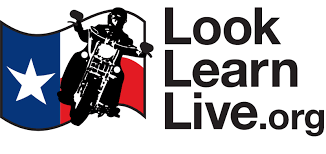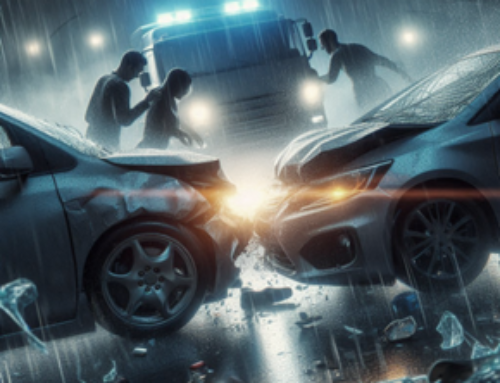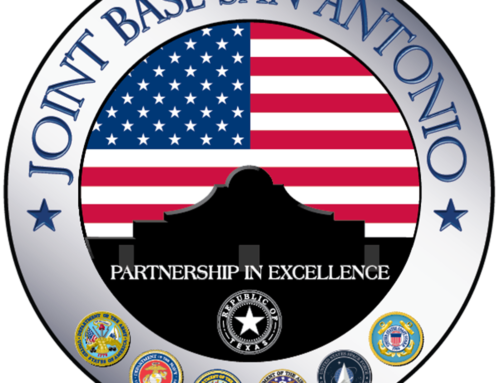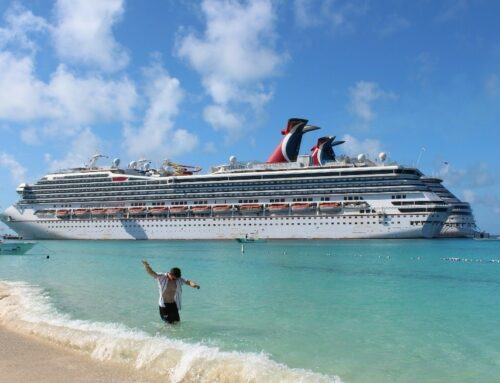May is Motorcycle Safety Awareness Month!
Top 5 Motorcycle Myths
May is Motorcycle Safety Month!

Motorcycle riding is a thrilling and rewarding hobby, but it also comes with its share of challenges and risks. Unfortunately, there are many myths and misconceptions that surround riders and their motorcycles, which can affect a motorcyclists’ safety, performance and enjoyment. However, it’s easy to debunk these common misconceptions about motorcycle riding with just a little information, and learns a few tips.
- Motorcycles are Less Reliable than Cars
Some people may think that motorcycles are more prone to breakdowns and mechanical issues than cars, because they are cheaper, smaller and simpler. However, that assumption is not necessarily true. Modern motorcycles are designed and built with high-quality materials and components, and they undergo rigorous testing and
quality control before hitting the market. Motorcycles also have fewer moving parts than cars, which means less wear and tear and maintenance costs.
Of course, reliability also depends on how well you take care of your motorcycle. You should follow the recommended service intervals, check the fluid levels, tire pressure and chain tension regularly, and use quality parts and accessories. If you do these things, your motorcycle will serve you well for a long time.
- The More Power, the Better
Some motorcyclists may believe that “bigger is better” when it comes to motorcycle engines. They may think that having more horsepower and torque will make them faster, safer and more skilled. This is a dangerous misconception that can lead to overconfidence, reckless riding and accidents. More power does not necessarily mean more fun or more control. In fact, more power can be overwhelming and intimidating for inexperienced or untrained riders.
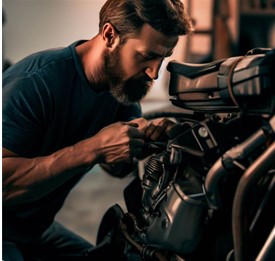 Power is only one aspect of a motorcycle’s performance. You also need to consider other factors such as weight, handling, braking, suspension, aerodynamics and rider skill. A smaller or less powerful motorcycle frequently is more agile, responsive and efficient than a larger or more powerful one, depending on the riding situation and style. The best way to find out what motorcycle suits you best is to gauge your needs by test riding different models, then comparing their features and characteristics.
Power is only one aspect of a motorcycle’s performance. You also need to consider other factors such as weight, handling, braking, suspension, aerodynamics and rider skill. A smaller or less powerful motorcycle frequently is more agile, responsive and efficient than a larger or more powerful one, depending on the riding situation and style. The best way to find out what motorcycle suits you best is to gauge your needs by test riding different models, then comparing their features and characteristics.
- Bikers Cause More Traffic
Some motorists may blame bikers for causing traffic jams or congestion on the roads. They may believe that bikers are irresponsible, rude or lawless, and that they weave in and out of lanes, cut off other vehicles or run red lights. However, this is a biased and unfair generalization that does not reflect the reality of most bikers. Most bikers are courteous, respectful and law-abiding road users who follow the rules of the road and practice defensive riding.
In fact, motorcycles can help reduce traffic problems by taking up less space on the road, parking easier and consuming less fuel than cars. Motorcycles also can filter through traffic safely and legally in some countries or states, which can improve traffic flow and efficiency for everyone. The key is to respect each other’s rights and responsibilities on the road, and to share the road safely and courteously.
- You Don’t Need Safety Gear in Your Own Neighborhood
Some riders may think that they don’t need to wear safety gear when they are riding in their neighborhood or on short trips. Some may begin to think that that they are totally familiar with the roads, that they are not going fast or far enough to get hurt, or that they are too hot or uncomfortable to wear protective clothing. However, this is a risky misconception that can have serious consequences. According to statistics, most motorcycle crashes occur close to home or on roads with speed limits of 40 mph or less.
Safety gear is essential for every ride, no matter how short or slow the trip is. You never know when an accident can happen due to factors beyond your control, such as other drivers, road conditions or weather. Safety gear can protect you from injuries such as abrasions, fractures or head trauma in case of a crash. You should always wear a helmet that meets safety standards, a jacket and pants with armor in the elbows, shoulders, back, hips and knees, plus gloves, boots and eye protection.
- Side streets Are Safer Than Main Roads
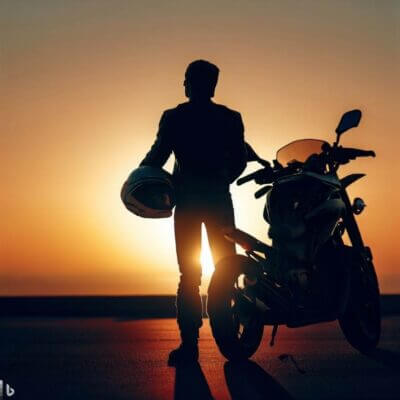 Some riders may prefer to ride on side streets rather than main roads because they think they are safer, or more enjoyable. They may reason that side streets have less traffic, lower speed limits or more scenic views than main roads. However, this assumption is not always true. Side streets can have their own hazards and challenges which can make them more dangerous than main roads.
Some riders may prefer to ride on side streets rather than main roads because they think they are safer, or more enjoyable. They may reason that side streets have less traffic, lower speed limits or more scenic views than main roads. However, this assumption is not always true. Side streets can have their own hazards and challenges which can make them more dangerous than main roads.
Side streets can have more intersections, driveways or alleys where cars can pull out unexpectedly or block your view of oncoming traffic. They also can have more pedestrians, cyclists or animals that can cross your path without warning. Side streets can have poorer road conditions, such as potholes, gravel or debris which can affect your traction or stability. The best way to ride safely on any road is to be alert, aware and prepared for any potential hazards.
Motorcycle riding is a fun and exciting hobby that can also be safe and rewarding if you avoid these common misconceptions and follow these safety tips. Remember to always ride within your limits maintain your motorcycle properly, wear safety gear at all times, respect other road users and enjoy the ride!
We at the Herd Law Firm, PLLC, are motorcycle riders, too! We support bikers and motorcyclists injured on the road, and have successfully represented such victims seeking the assistance and compensation they so need and deserve.
5/16/2023
Sources:
https://www.trafficsafetymarketing.gov/sites/tsm.gov/files/2022-04/15548a-motorcycle_safety_factsheet_033022v3-tag.docx.
